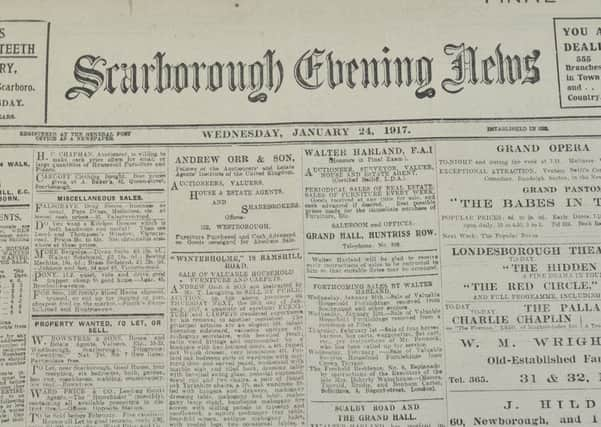1917 court: No fish for Penguin as two crewmen sleep in


Mr J Whitfield, solicitor, appeared for the prosecutor, Mr James Johnson, managing owner of the Penguin, and the men were defended by Mr GE Royle, solicitor.
In outlining the case Mr Whitfield said that the two men were engaged, in the ordinary way, to serve as deck hands on the trawler. A week ago that day they received certain orders as to joining the vessel at two o’clock in the morning. They did not attend as ordered with the result that the trawler was delayed, and also the remaining seven members of the crew. Johnson saw the men about 9.30am on the Wednesday morning, and had a conversation with them. He asked them as to the time they were ordered to be aboard, and the reason they had not turned up. Each made the reply that they never awoke until 6.30am. Mr Johnson then referred in some detail to another episode which had taken place a week before, and he said he could certainly not overlook that matter on that occasion. These cases, said from two standpoints (1) that of the owner, and (2) that of the other members of the crew who turned up. Some of the latter were on share-pay, so that if the boat was delayed by the omission of any member to attend as instructed, it meant a loss to each of the men on share-pay. Again, there was a serious loss against the owner, who had to meet all standing charges whether the boat was at sea or not.
Advertisement
Hide AdAdvertisement
Hide AdAnother ground which made it a serious matter was that when the boat was not at sea it caught no fish, and thus there was a loss of food supply coming into the country. The penalty for such offences was an amount not exceeding two days’ wages. These two men were paid 7s a day - a definite standing wage. In addition they received a bonus of 6s per £100 on the gross earnings which very often meant as much as 16s a day to them. He did not know whether the magistrates could, in estimating the penalty, take into account the gross earnings and not only the 7s a day fixed.
James Johnson, 66, Columbus Ravine, managing owner of the vessel, then gave evidence. When they said they did not awake until 6.30am, he asked then what time they went down, and they replied: We have just come. That was at 9.30am. He reminded them of a previous incident on a Friday afternoon, where the young men did not turn up at all. They went as far as the end of the middle pier. He alleged that one of them was drunk, and he asked if they were asleep that afternoon.
Out of 25 nights the vessel (Penguin) has been to sea seven nights - it had been in the harbour 17 or 18 nights undergoing overhauling, and all that time he had been paying the men before the courts 7s a day. In addition to their wages and bonus the men got a good deal in the way of “stocker” (certain fish). He estimated that they had as much as £4 for a voyage of four or five nights from “stocker,” in addition to bonus and wages. The boat Penguin, said witness in reply to a question, had averaged recently between £90 and £100 a night in earnings, when it had been at sea.
Mr Royle: Do you tell the court that if the crew had all turned up the vessel would have gone out of the harbour at all? - Certainly it would.
Advertisement
Hide AdAdvertisement
Hide AdDo you know that none of the other trawlers went out until Friday morning? - I dispute that.
If it is sworn to, you will dispute it? - Yes, I’ll dispute it. The Penguin sailed the following morning (Thursday).
Cox, in the box, said he set an alarm clock, but the latter did not go off. Had it done so he would have turned up.
Sheader said his father had tried to wake him at two. The wind was so strong his father did not think it was worthwhile for him to go down.
Advertisement
Hide AdAdvertisement
Hide AdMr Royle, addressing the magistrates, said the Act was to protect owners where there was insolent refusal to go to sea, but there must be reasonable exercise of the powers of the Act, and such, he urged, did not apply in this case. There was no wilful refusal, and the Act he confirmed was not to meet punishment in a case like that of over sleeping or where an alarm clock did not go off. A broad view must be taken.
After retiring the mayor said that the magistrates found the charge proved. They thought it was an offence of a decidedly serious nature at any time, keeping a vessel back.
The defendants would have to pay the full penalty of 9s 6d a day for two days, 19s each.
They asked for time in which to pay, and the mayor asked if they had not saved any money out of the large wages they had earned, but it was said that they had no work at present and had no money saved.
The magistrates granted the men a fortnight in which to pay.